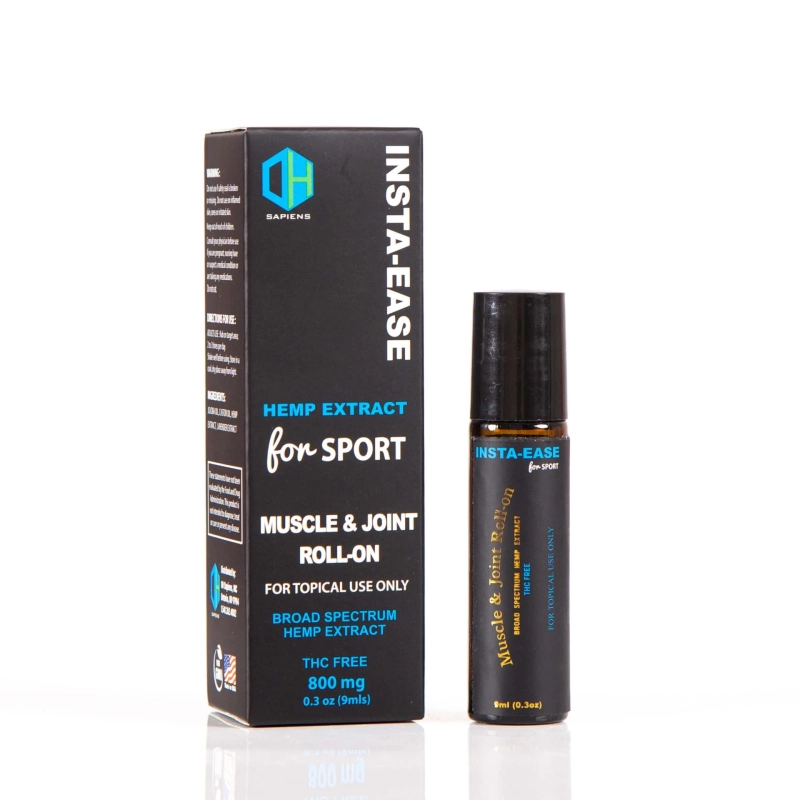CBD (cannabidiol) appears to be popular with athletes and other frequent exercisers. It claims to treat pain, reduce muscle soreness and inflammation, improve sleep quality, and reduce anxiety. CBD For Sports has been used by about 4 - 6 million UK individuals. However, there is little evidence to back up its use, and makers are not permitted to make any health claims for it. Here is everything you need to know about cannabidiol.
What exactly is CBD For Sports?
CBD For Sports Injuries is one of around 120 active chemicals (cannabinoids) discovered in the Cannabis sativa plant. CBD is derived from the hemp (rather than marijuana) strain of the plant, which has very little tetrahydrocannabinol (THC), the illicit psychoactive component. THC allows you to go "high," whereas CBD For Sports Injuries does not. However, it is incorrect to say it has no 'psychoactive' effect because it acts on the brain and appears to have an affect on cognitive functions. CBD oil, tincture, pills, sprays, lotions, and gummies are all widely accessible.
What is the function of CBD For Sports?
CBD research is limited, and it is largely focused on animal (rather than human) investigations. According to a review from the University of Nottingham, there is only little evidence to support its use in general, and there is no direct evidence that CBD For Sports Injuries improves sports performance. Only a limited amount of pre-clinical research suggests that CBD may help ease pain, reduce inflammation, reduce anxiety, and enhance sleep quality.
Despite this, one research of over 500 rugby league and union players discovered that 26% now or previously used CBD For Sports to provide pain relief or improve sleep quality.
How does CBD work?
CBD For Sports is hypothesised to work through interacting with the body's endocannabinoid system (ECS). This is a network of receptors in your brain, peripheral tissues, and immune system that regulates sleep, appetite, pain, and immunological responses. The body creates cannabinoids (endocannabinoids) that bind to CB1 and CB2 receptors and suppress the release of certain neurotransmitters. CBD For Sports Injuries supplements may help the body's own endocannabinoids.
CBD may improve sleep quality by inhibiting adenosine re-uptake in the brain.
Is it legal?
CBD For Sports derived from hemp is lawful to buy and use in the United Kingdom as long as it contains less than 0.3% THC. It is also authorised for use in drug-tested sports after being removed from the World Anti-Doping Association's (WADA) forbidden list in 2018. However, UK Anti-Doping (UKAD) advises against using it because it may be tainted with THC or other illegal cannabinoids.
A recent investigation by the Centre for Medicinal Cannabis blind-tested 30 CBD For Sports Injuries products purchased on the High Street and online. It discovered that nearly half of them (45%) had detectable quantities of THC, making them technically illegal in the UK. Only 38% of the items were within 10% of the reported CBD amount, and 38% had less than half of the advertised CBD For Sports Injuries content. One item contained no CBD. As a result, athletes subject to anti-doping guidelines are recommended to avoid it due to the potential of unintended doping.
Are there any side effects?
According to a 2018 World Health Organization report, CBD For Sports Injuries is harmless and does not have the potential for addiction. Similarly, an assessment of the safety and side effects of CBD discovered that it is well-tolerated, despite reports of weariness, diarrhoea, and changes in appetite. One study in mice revealed the possibility of liver damage and interactions with other drugs.
Recommendations for action
CBD For Sports cannot be suggested to athletes and frequent exercisers at this time due to a lack of published evidence and the potential of contamination with THC. Even products bearing a certificate of analysis cannot guarantee against unintended doping. Another issue is the wide difference in CBD concentration between products, as well as a lack of research on effective doses. Because CBD products are pricey, I urge that you save your money for the time being.
If you loved this post and want to learn more about food and nutrition, as well as get some quick and tasty meal ideas, my new book, The Vegan Athlete's Cookbook, is now available for pre-order.
Vegan dishes that are exciting, healthy, and flavorful, with the nutrition you need to exercise, recover, and perform.
Whether you already live a vegan lifestyle, have a meat-free day every week, or simply want to explore some delicious flavour combinations, The Vegan Athlete's Cookbook will help you make quick, nutrient-packed meals that complement your training goals.
With an emphasis on performance, each recipe has been designed to give a high amount of nutrients that will feed your body. All of the main meal recipes contain at least 20g of protein per serving, which is the recommended amount for muscle rehabilitation.
0


